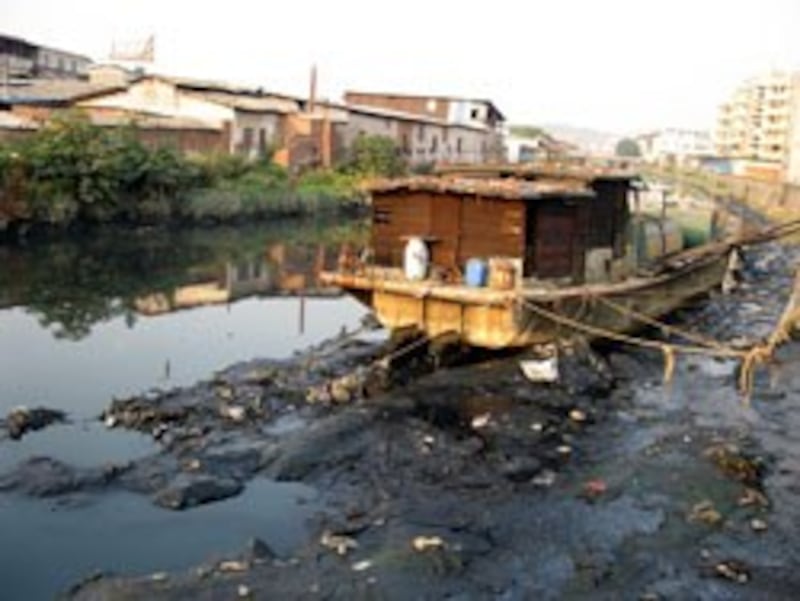Authorities in the southwestern Chinese province of Yunnan are investigating the dumping of more than 5,000 tons of toxic waste that polluted local water supplies and killed livestock, as residents say official media have failed to report on the sheer scale of the disaster.
The illegal dumping of more than 5,000 tons of highly toxic industrial waste into a tributary of the Pearl River occurred more than two months ago, but official media only reported the disaster this week.
"Water resources experts arrived on Sunday to assess the condition of the Nanpan River, which is the source of the Pearl River," the official China Daily newspaper said on Tuesday.
According to officials in the Qujing municipal government, two truck drivers illegally dumped 5,222 tons of chromium compound waste, a highly toxic heavy metal, in three townships near the city between April and June.
Qujing in eastern Yunnan is a key industrial city, and is the second largest city by population in the province.
Police have arrested the two truck drivers, Wu Xinghuai and Liu Xingshui, according to China Daily.
The pair were working for chromium producer Yunnan Province Luliang Chemical Industry, and were supposed to have shipped the waste to a treatment plant in bordering Guizhou province.
Instead, they dumped the waste and pocketed the transport costs. Company executives told the paper production had been halted at the plant.
Livestock die

The first sign that something was wrong came on June 12, when villagers reported that goats grazing near the dumping sites had died.
In total, 77 livestock died from the pollution, with water in a pond and a small reservoir near the dumping sites heavily contaminated with chromium compounds, according to a statement from the Qujing government.
But it added that the pollution had not caused any human deaths or injuries, nor was water quality in the parts of the Nanpan river that pass through the city affected.
A business owner whose factory is located near the chemical plant said there is nothing green growing in its immediate environment.
"We are upstream of it so there is no pollution here," he said. "It's all over in Luliang county, which is downstream."
"The vegetables are all poisoned ... they can't grow vegetables now," he added.
Residents 'still afraid'
Wang Shaojin, head of nearby Huangnibao village, said villagers first began to notice that some of the livestock left to graze on the hillsides were dying off suddenly, while the reservoir waters had turned somewhat yellow.
"The chromium has got into the vegetation, and you can see that the water in the reservoir has turned a bit yellow, and the livestock farmers in the hills have been affected too," Wang said.
"After it was reported, the government came and cleaned it up in three days."
A number of residents of Qujing city said they were still afraid to drink the water in spite of official assurances, for fear the cleanup effort had been unsuccessful.
A Qujing resident surnamed Zhang said people's mistrust of the government stems from a lack of transparency around the pollution scandal.
"The pollution was worse over in the Nanpan river, where there is also a lot of rubbish in the water," Zhang said. "The goverment hasn't made public any information, so we are all drinking [bottled] water."
"We're not using the tap water, or else we are filtering it ourselves," he added.
Government cleans up
An employee who answered the phone at the Yunnan provincial environmental protection department declined to comment. Repeated calls to the head of the department, surnamed Yuan, went unanswered on Monday.
The Party secretary of Zhangjiaying village said the dumping had occurred by the side of the road near his village.
"They drove it out to the side of a road over here and tipped it right in," Lu Guoliang said. "We found out there was trash and we told them to go elsewhere."
"On June 10, there was a rainstorm, and after that the sheep, cattle, and horses that drank this water died."
"The environmental bureau has been testing the water daily for two months, and basically there is no pollution left."
He said the authorities had also paid compensation to two families whose animals had died in the incident.
The China Daily said the cleanup operation had removed 9,130 tons of chromium-tainted material from the sites, and the 100 cubic meters of polluted water had been thoroughly treated.
Environmental protection authorities in South China's Guangdong province said on Saturday that no chromium pollution had been detected in the Pearl River, a water source for tens of millions of the province's residents.
But the government responded only after netizens voiced concerns over the toxic waste on the popular microblogging service Sina Weibo.
Reported by Wen Yuqing for RFA's Cantonese service, and by Ding Xiao for the Mandarin service. Translated and written in English by Luisetta Mudie.
